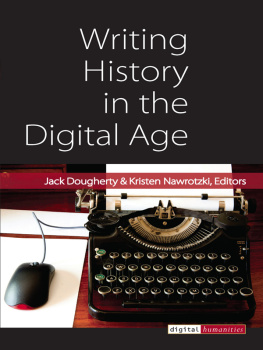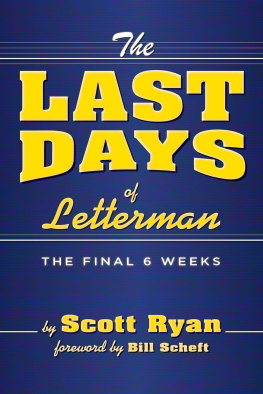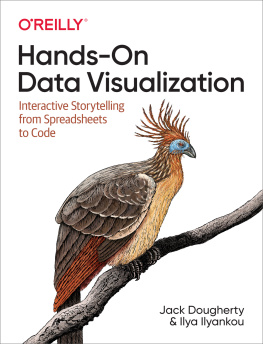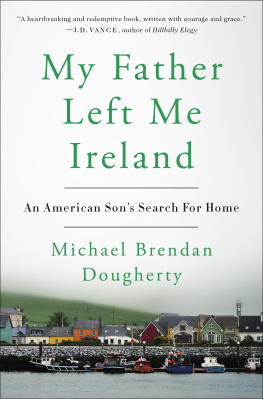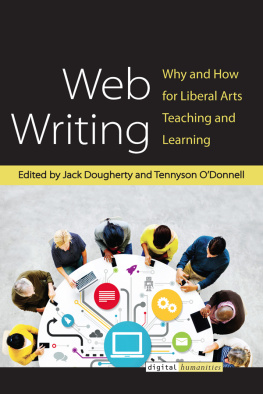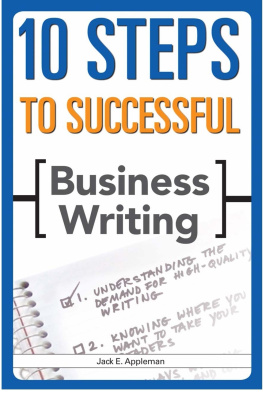Dougherty Jack - Writing History in the Digital Age
Here you can read online Dougherty Jack - Writing History in the Digital Age full text of the book (entire story) in english for free. Download pdf and epub, get meaning, cover and reviews about this ebook. year: 2018, publisher: The University of Michigan Press, genre: Romance novel. Description of the work, (preface) as well as reviews are available. Best literature library LitArk.com created for fans of good reading and offers a wide selection of genres:
Romance novel
Science fiction
Adventure
Detective
Science
History
Home and family
Prose
Art
Politics
Computer
Non-fiction
Religion
Business
Children
Humor
Choose a favorite category and find really read worthwhile books. Enjoy immersion in the world of imagination, feel the emotions of the characters or learn something new for yourself, make an fascinating discovery.
- Book:Writing History in the Digital Age
- Author:
- Publisher:The University of Michigan Press
- Genre:
- Year:2018
- Rating:3 / 5
- Favourites:Add to favourites
- Your mark:
- 60
- 1
- 2
- 3
- 4
- 5
Writing History in the Digital Age: summary, description and annotation
We offer to read an annotation, description, summary or preface (depends on what the author of the book "Writing History in the Digital Age" wrote himself). If you haven't found the necessary information about the book — write in the comments, we will try to find it.
Writing History in the Digital Age — read online for free the complete book (whole text) full work
Below is the text of the book, divided by pages. System saving the place of the last page read, allows you to conveniently read the book "Writing History in the Digital Age" online for free, without having to search again every time where you left off. Put a bookmark, and you can go to the page where you finished reading at any time.
Font size:
Interval:
Bookmark:
 Page i Page ii
Page i Page ii DIGITAL HUMANITIES
The Digital Humanities series provides a forum for groundbreaking and benchmark work in digital humanities, lying at the intersections of computers and the disciplines of arts and humanities, library and information science, media and communications studies, and cultural studies.
Series Editors:
Julie Thompson Klein, Wayne State University
Tara McPherson, University of Southern California
Paul Conway, University of Michigan

Teaching History in the Digital Age
T. Mills Kelly
Hacking the Academy: New Approaches to Scholarship and Teaching from Digital Humanities
Daniel J. Cohen and Tom Scheinfeldt, Editors
Writing History in the Digital Age
Jack Dougherty and Kristen Nawrotzki, Editors

DIGITALCULTUREBOOKS, an imprint of the University of Michigan Press, is dedicated to publishing work in new media studies and the emerging field of digital humanities.
Page iiiJack Dougherty and Kristen Nawrotzki, editors
The University of Michigan Press
Ann Arbor
Copyright by Jack Dougherty and Kristen Nawrotzki and contributors 2013 Some rights reserved

This work is licensed under the Creative Commons Attribution-Noncommercial-No Derivative Works 3.0 United States License. To view a copy of this license, visit http://creativecommons.org/licenses/by-nc-nd/3.0/ or send a letter to Creative Commons, 171 Second Street, Suite 300, San Francisco, California, 94105, USA.
Published in the United States of America by
The University of Michigan Press
Manufactured in the United States of America Printed on acid-free paper
Printed on acid-free paper
2016 2015 2014 2013 4 3 2 1
A CIP catalog record for this book is available from the British Library.
DOI: http://dx.doi.org/10.3998/dh.12230987.0001.001
Library of Congress Cataloging-in-Publication Data
Writing history in the digital age / Jack Dougherty, Kristen Nawrotzki, editors.
pages cm. (Digital humanities)
ISBN 978-0-472-07206-4 (hardback) ISBN 978-0-472-05206-6 (paper) ISBN 978-0-472-02991-4 (e-book)
1. HistoryMethodology. 2. Academic writingData processing. 3. HistoryResearchData processing. 4. Historiography. 5. Electronic data processing.
I. Dougherty, Jack. II. Nawrotzki, Kristen.
D16.12.W75 2013
902'.85dc23
2013025449
Page vA freely accessible version of this book, including the original essay ideas, preliminary drafts, and comments by readers during the open-review period, is available on the web at http://WritingHistory.trincoll.edu.
All web links in this book were functional as of April 2012. Due to the changing nature of the Internet, all external links have been cited in the notes to assist future researchers.
Page vi Page viiThis volume of essays would not have been possible without the numerous contributors and commenters who participated in the process and helped shape our vision of what it means to be writing history in the digital age. We thank those who played a part in our pilot project for the fall 2010 conference of the History of Education Society, as well as those who submitted an essay or posted a comment on the web-book between its launch in May 2011 and the conclusion of the open-review period in November 2012: Trudi Abel, Dan Allosso, Zayde Antrim, Davarian Baldwin, Jean Bauer, Chad Black, Daniela Blei, Lauren Braun-Strumfels, Kevin J. Brehony, Sheila Brennan, Anne-Elizabeth Brodsky, Timothy Burke, William Caraher, Alex Sayf Cummings, Jed Dobson, Sherman Dorn, Thomas Dublin, David Elder, Ansley Erickson, Daniel Faltesek, Nadine Feuerherm, Nancy Friedland, Courtney Fullilove, Sandra Gabriele, Alex Galarza, Susan Garfinkel, Fred Gibbs, Shawn Graham, Cheryl Greenberg, Trevor Griffey, Robbie Gross, Peter Haber, Christopher Hager, Eric Hansen, Tom Harbison, Katherine Hart, Jason Heppler, Michael Hevel, Jonathan Jarrett, Jason Jones, Julie Judkins, Judith Kafka, Hillary Kativa, Mills Kelly, Charles Klinetobe, Shane Landrum, Adrea Lawrence, Cindy Loch-Drake, Brandon Locke, Abbey Lowe, Leslie Madsen-Brooks, Sarah Manekin, Katya Maslakowski, Austin Mason, Guy Massie, Jeff McClurken, John McClymer, Jeremy McGinniss, James B. McSwain, Natalia Mehlman Petrzela, Corey Meyer, Sylvia K. Miller, Sara Morris, Hilary Moss, Kaci Nash, Rob Nelson, Scott Nesbit, Andrea Nichols, Ellen Noonan, Bethany Nowviskie, Mike O'Malley, Y. P. Ong, Trevor Owens, Marshall Poe, Miriam Posner, Heather Munro Prescott, Jenny Presnell, Michelle Purdy, Svetlana Rasmussen, Penny Richards, Stephen Robertson, Charlotte D. Rochez, Barbara Rockenbach, Oscar Rosales Castaeda, Lisa Rosner, Katherine Rowe, Paul Rowland, Allison Ruda, Brian Sarnacki, Martha Page viii Saxton, Frank Schloeffel, Julia Schreiner, Steven Schwinghamer, Amanda Seligman, Jen Seltz, Ryan Shackleton, Ryan Shaw, Tim Sherratt, Amanda Sikarskie, Kathryn Kish Sklar, Margery Sly, Anna Smith, Lisa Spiro, Stefan Tanaka, Mark Tebeau, John Theibault, William G. Thomas, Dee Thompson, Michelle Tiedje, Kathryn Tomasek, Andrew J. Torget, Hannah Ueno, Ted Underwood, Jason Verber, Luke Waltzer, Ethan Watrall, Marcin Wilkowski, Jacqueline Wilson, Rebecca S. Wingo, Mark Winokur, Gail Wolfe, Robert Wolff, and Laura Zucconi.
We also appreciate the timely WordPress support provided by Carlos Espinosa and David Tatem at Trinity College in Hartford, Connecticut; the creation of CommentPress by Eddie Tejeda and the Institute for the Future of the Book, with subsequent revisions by Christian Wach; our Trinity College research assistant, Katie Campbell; a manuscript fellowship from the Trinity Institute for Interdisciplinary Scholarship; Tom Scheinfeldt at the Roy Rosenzweig Center for History and New Media at George Mason University, for early words of encouragement on creating this volume; and our publishing partners at the University of Michigan: Tom Dwyer, Shana Kimball, Korey Jackson, Christopher Dreyer, Alexa Ducsay, Andrea Olson, Jill Butler Wilson, and their colleagues.
Page ix Page x Page xi Page xii- Introduction
KRISTEN NAWROTZKI AND JACK DOUGHERTY - Is (Digital) History More than an Argument about the Past?
SHERMAN DORN - Pasts in a Digital Age
STEFAN TANAKA - I Nevertheless Am a Historian: Digital Historical Practice and Malpractice around Black Confederate Soldiers
LESLIE MADSEN-BROOKS - The Historian's Craft, Popular Memory, and Wikipedia
ROBERT S. WOLFF - The Wikiblitz: A Wikipedia Editing Assignment in a First-Year Undergraduate Class
SHAWN GRAHAM - Wikipedia and Women's History: A Classroom Experience
MARTHA SAXTON - Toward Teaching the Introductory History Course, Digitally
THOMAS HARBISON AND LUKE WALTZER - Learning How to Write Analog and Digital History
ADREA LAWRENCE - Teaching Wikipedia without Apologies
AMANDA SELIGMAN - Historical Research and the Problem of Categories: Reflections on 10,000 Digital Note Cards
ANSLEY T. ERICKSON - Creating Meaning in a Sea of Information: The Women and Social Movements
Font size:
Interval:
Bookmark:
Similar books «Writing History in the Digital Age»
Look at similar books to Writing History in the Digital Age. We have selected literature similar in name and meaning in the hope of providing readers with more options to find new, interesting, not yet read works.
Discussion, reviews of the book Writing History in the Digital Age and just readers' own opinions. Leave your comments, write what you think about the work, its meaning or the main characters. Specify what exactly you liked and what you didn't like, and why you think so.

